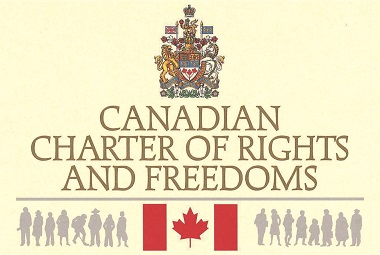
The official English version of the Canadian Charter of Rights and Freedoms, is shown. THE CANADIAN PRESS/stf
Two British Columbians, including a new faculty member at UBC’s law school, made significant contributions to a valuable series of videos on The Forgotten Freedoms of s. 2 of the Charter.
Co-presented by the Christian Legal Fellowship (CLF) and the Forgotten Freedoms Project, the series, released earlier this year, “explores fundamental freedoms which have been largely overlooked in Canada.”
This is section 2 of the Canadian Charter of Rights and Freedoms:
Fundamental Freedoms
2. Everyone has the following fundamental freedoms:
(a) freedom of conscience and religion;
(b) freedom of thought, belief, opinion and expression, including freedom of the press and other media of communication;
(c) freedom of peaceful assembly; and
(d) freedom of association.
The four Forgotten Freedoms videos (and an introductory video) address these issues one by one.
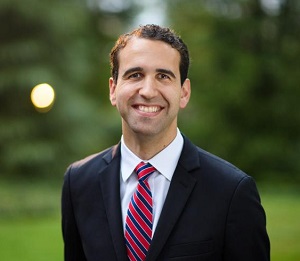
Brian Bird has recently joined the faculty of the Peter A. Allard School of Law at UBC.
Freedom of conscience is a key issue for presenters, so it is not surprising that the first video is the longest.
Dr. Brian Bird, who has just joined the faculty of the UBC’s Peter A. Allard School of Law, following postdoctoral work at Princeton University (earlier he clerked for judges of the Supreme Court of BC and the Supreme Court of Canada and completed his doctorate in law at McGill University on the topic of freedom of conscience) begins by saying:
Freedom of religion has been quite frequently litigated in the courts, and frequently talked about, but freedom of conscience has truly been not spoken of really at all.
In a nutshell, I argue that freedom of conscience protects our freedom to live in alignment with our moral judgments, our moral convictions.
Following Bird is Mary Anne Waldron, QC, professor emerita in the Faculty of Law at the University of Victoria and author of Free to Believe: Rethinking Freedom of Conscience and Religion in Canada (University of Toronto Press, 2013).
She said:
Issues of conscience and religion are very central issues. Freedom of religion, to a large degree now, is being seen by the courts as simply a personal private choice that people make. I think it minimizes the fundamental nature of all kinds of belief commitments, including ones that we would commonly think of as religious, but somewhat broader than that.
This is narrowing this issue, and part of the work that might be done by freedom of religion can, I think, be properly classed under freedom of conscience issues. But courts tend not to talk about freedom of conscience. They talk about freedom of religion because many conscience issues do overlap with religious issues.
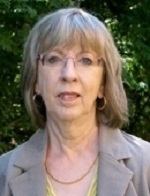
Mary Anne Waldron
So they look at a case, they say, well it’s a religion case, but moral commitments aren’t really core to religious belief, so really this isn’t a very important issue, so it’s dismissed.
One of the problems is that we are making our society vulnerable to a kind of moral totalitarianism that I think is a serious problem for democracy. The majority has the right, in law, to express moral commitments and to make those part of the law.
But under the Charter – what the Charter is supposed to be for – is to protect the unpopular, the minority opinion, and to give it a strong protection so that it isn’t just simply stomped out and oppressed.
That’s just part of the democratic process, it ensures the possibility of change in a democratic society, which is absolutely crucial, and probably the thing that distinguishes totalitarianism from democracy.
Bird continues, “Perhaps the most difficult question is, when is it justifiable or reasonable or okay for the state to limit or curtail those freedoms. . . .
Go here to see Episode 1, and the whole series.
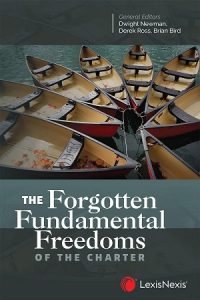 These videos are each quite short, between six and 12 minutes, and would be well worth the time of anyone with any kind leadership role in a church or ministry.
These videos are each quite short, between six and 12 minutes, and would be well worth the time of anyone with any kind leadership role in a church or ministry.
Several participants in The Forgotten Freedoms video series have also contributed to a book due out next month: The Forgotten Fundamental Freedoms of the Charter (LexisNexis, 2020).
Dwight Newman, QC, Professor of Law and Canada Research Chair in Indigenous Rights in Constitutional and International Law at the University of Saskatchewan, wrote the book, while Derek Ross, Executive Director & General Counsel for Christian Legal Fellowship, is general editor, along with Brian Bird.
Many of those contributors also took part in a Charter Day Webinar in April. A video of somewhat less than two hours touches on the same themes as the video series and the book.
Derek Ross and Benjamin Ferland have just written an article in the latest issue of the CLF’s Christian Legal Journal which relates these themes to COVID-19.
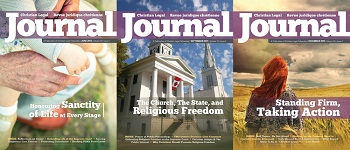 A quote at the beginning asks: “The question of ‘What should churches be doing?’ is distinct from the question of ‘What is the state justified in forcing churches to do (or not do)?‘”
A quote at the beginning asks: “The question of ‘What should churches be doing?’ is distinct from the question of ‘What is the state justified in forcing churches to do (or not do)?‘”
While the authors are careful to affirm that governments may be obliged to curtail certain civil liberties during emergency situations such as the pandemic, they also state:
As regards religious communities in particular, there are at least three precedents arising from this pandemic that we should be mindful of:
-
- The state’s definition of churches and religious activities as “non-essential.”
- Potentially discriminatory restrictions prohibiting religious activities while non-religious activities of similar or greater risk are permitted to continue.
- The imposition of indeterminate limitations on our fundamental rights and freedoms with no predetermined mechanism for public review of their justification.
Go here for the full five-page article.
Bird, Newman and Ross also wrote a June 16 article on the ‘forgotten freedoms’ theme for Policy Options.

Thanks, Flyn, for running this story. Over the summer I’ve taken a keen interest in justice, especially in the context of racism, with a view to writing on the subject, and have read several books about it, so appreciate this resource.